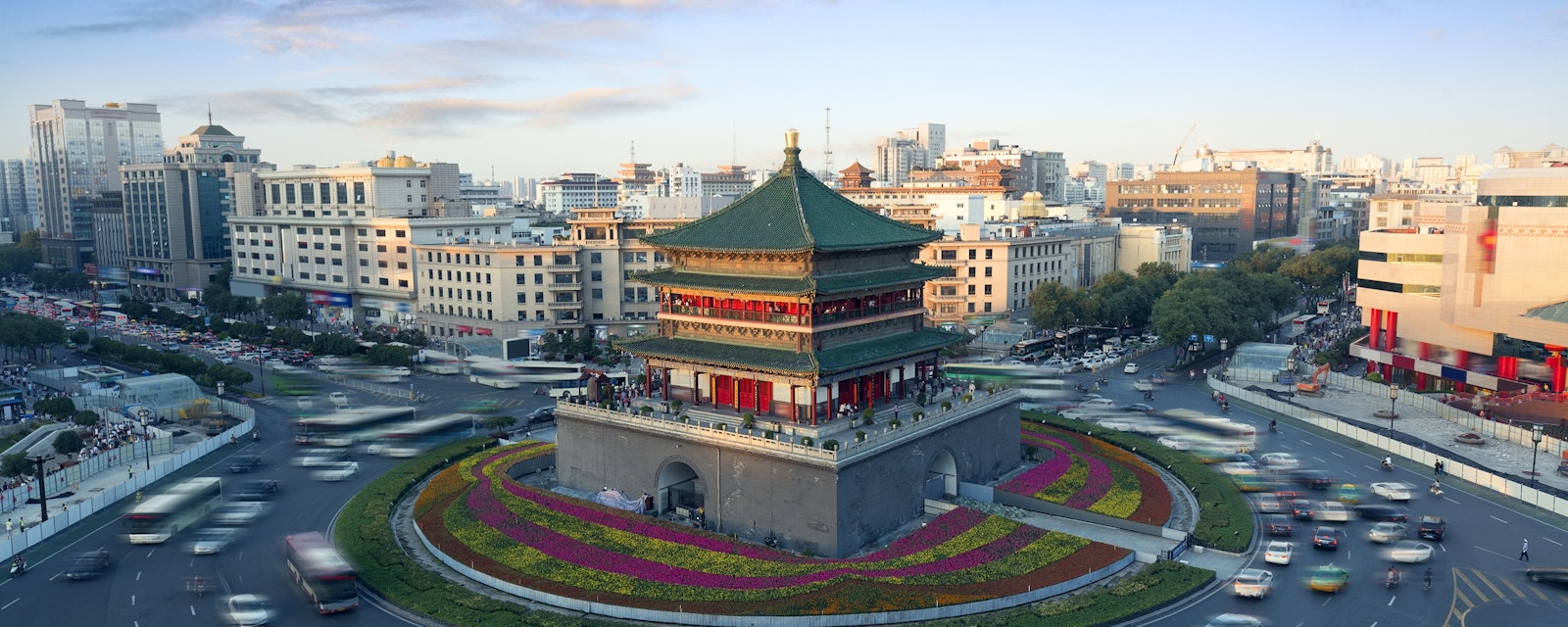A recent outbreak in Xi'an is attributable to Delta, but the outbreak still raises questions about whether China's zero-tolerance approach will remain viable amid the Omicron wave. Even if China's zero-tolerance playbook can succeed in containing Omicron outbreaks, other concerns may render the policy unsustainable beyond 2022. But relenting from zero-tolerance would bring extraordinary challenges, with daily new cases potentially surpassing 600,000 and hospitals overwhelmed.
Xi'an city in central China's Shaanxi province is suffering the country's worst Covid-19 outbreak since early 2020, with 1,663 cases reported between 8 December and 2 January. Authorities placed the whole city on lockdown, a departure from the more familiar playbook since mid-2020 of targeted lockdowns focused on specific districts or apartment blocks. The forceful approach appears to be working. Following seven straight days of at least 150 new cases through 31 December, new cases in the city fell to 90 on 2 January.
Xi'an authorities attributed local infections to the Delta variant, but the outbreak still raises questions about whether China's zero-tolerance approach will remain viable amid the Omicron wave. In Xi'an, widespread complaints emerged on social media from homebound residents unable to obtain groceries, baby diapers, and other essentials. City authorities blamed a shortage of delivery drivers. The Chinese government has so far reported only a handful of Omicron cases, most of them imported. But if an Omicron outbreak leads to Xi'an-style shutdowns in multiple cities, social discontent could multiply.
Vaccine Weakness
Doubts about the efficacy of Chinese-made vaccines adds to the risk from Omicron. Scientists at Hong Kong University said that a study of 25 people double-vaccinated with Sinovac's CoronaVac showed that none had detectable levels of antibodies that neutralize Omicron. That result was even worse than for a comparable group of 26 subjects who were double-vaccinated with Pfizer-BioNTech, of whom only six had detectable antibody levels. In response, Sinovac's chief executive cited internal company data indicating that a third dose of Sinovac offered some protection against Omicron, but other studies suggest that the level of protection is still lower than mRNA vaccines.
Trapped in a Bubble?
Even if China's existing playbook can succeed in containing Omicron, other concerns may also undermine the sustainability of zero-tolerance. Even before Omicron, our forecast was that China would likely remain closed to international travel until after the 20th Party Congress in late 2022. The rise of Omicron raises the prospect that the pandemic may last for years beyond that. Moreover, some experts have suggested that a wave of relatively mild Omicron cases might generate a degree of herd immunity in heavily affected countries that offers protection against subsequent outbreaks and even new variants. In this scenario, even if China's Omicron wave is minimal, Chinese leaders may find themselves effectively trapped in a zero-tolerance posture due to the country's lack of herd immunity.
Risks of Abandoning Zero-Tolerance
To be sure, relenting from zero-tolerance would bring extraordinary challenges. According to a paper by Peking University researchers published in late November (pre-Omicron) by the Chinese Centers for Disease Control and Prevention, if China adopted the same virus control strategy as the US, daily new cases would quickly exceed 600,000, while daily severe cases would exceed 10,000. Within one or two days, the total number of active severe cases would surpass the peak of early 2020, causing "a devastating impact on the medical system of China and cause a great disaster within the nation," the paper concluded.
A decision to approve the use of more effective foreign mRNA vaccines – or the rollout of a Chinese-developed version, one of which was scheduled to conclude phase 3 trials by the end of 2021 – would mitigate the impact of a climbdown from zero-tolerance. Nationalism appears to be playing a role in Beijing's delay in granting final approval to Pfizer-BioNTech, which reportedly cleared an expert review panel in July. Still, Omicron's ability to penetrate even Western vaccines suggests that new vaccine approvals would not be decisive.
Political and Bureaucratic Inertia
Beyond epidemiological considerations, China's zero-tolerance policy has strong political and bureaucratic momentum behind it. Bureaucratically, re-orienting local governments around a revised policy would be a significant challenge. Politically, given that a policy shift would definitely result in increased deaths and distressing scenes in at least some hospitals, the Politburo would need to reach a strong consensus in favor of such a shift. Without such consensus, those who advocated the change would be vulnerable to criticism from dissenters when hardships emerged.
Given these difficulties, the most likely scenario is that zero-tolerance and the associated travel restrictions will continue at least through 2022. For Chinese leaders, the increasing risk of international isolation, while salient, is subordinate to the domestic concerns described above. Only when the rest of the world appears to be emerging decisively from the pandemic will China's outlier status become a primary concern.





